
Have you ever had heart palpitations straight after eating? Your heart is pounding in your chest and it can honestly feel terrifying. So, what’s going on? Are there foods that cause heart palpitations? Are you having a heart attack? Or, is the feeling completely normal?
The answer is complex. For starters, some foods can indeed lead to heart palpitations, particularly the ones we’re highlighting on this list. Some drinks can as well, including coffee, tea, and alcohol.
However, the effects aren’t the same for everyone. You may be sensitive to some of the foods on this list and get no reactions at all for others.
The issue isn’t even related to food in every situation. Other things can trigger heart palpitations too, including stress and strong emotions. So, if you have trauma around food, the associated emotions might be more relevant than what you’re eating.
While heart palpitations after eating generally aren’t a big deal, it’s still important to talk to your doctor. This way you can be confident that there aren’t any serious underlying issues.
P.S. Some of these foods have been linked to other health issues, such as increased risk of heart disease, inflammation, increased mucus, and even hair loss. So, it may be wise to cut down your intake and focus on healthier options.
Foods That Cause Heart Palpitations
Fried Foods

It’s no secret – fried foods aren’t good for you. They can also easily lead to heart palpitations, partly because they’re rich and high in fat. Their effect may also be increased if you have a large serving.
That’s not all. Fried foods are often fairly high in carbs. While carbs are important for energy, they can also spike your blood sugar, which creates the sensation of a racing heart.
Eating fried foods regularly creates additional problems as well, including obesity and an increased risk of various health problems. As such, it’s best to give these foods a miss as much as you can. You don’t need to skip them entirely but try reserving them for extra special treats.
Red Meat

There are endless debates about the benefits and risks of red meat for your health. On one hand, red meat is a rich source of protein and gives you plenty of nutrients as well. On the other hand, it’s often high in saturated fat and calories.
The best amount of red meat varies from person to person. Some people cut it out entirely, while others (like myself) simply keep it for special occasions (seriously, there are too many benefits to avoid a juicy steak entirely).
Still… if you’re sensitive, red meat can easily give you heart palpitations. That’s partly because you’re eating a heavy meal that’s rich in protein and saturated fat. Small servings may help you get around the issue. Or, you may need to skip red meat entirely.
Ice Cream

Ice cream gives you a hit of fat and sugar – the perfect combination for getting your heart racing. The effect may be even stronger for people with diabetes, who are often more sensitive to blood sugar changes.
Ice cream could be particularly significant if you’re consuming it after a heavy meal. After all, these impacts quickly add up.
Desserts, Pastries, And Candy

These foods all tend to be high in sugar and simple carbs, while also being low in protein. It’s not surprising that they make your heart rate jump. The effect may be even stronger if you’re eating them on their own, rather than as part of a meal.
Some desserts and pastries end up being high in fat as well. This, combined with the sugar, creates a rich and decadent dessert that may be the last thing you need.
As with all entries on this list, we’re not saying that you should skip all desserts forever and ever. Instead, the goal is to be wise. Keep an eye on your portions and try to choose desserts when you’ll enjoy them the most.
Cured Meat

While cured meats can be delicious, they’re often high in nitrates and tyramine. Both of these compounds can be a problem in large quantities or if you’re sensitive to them.
We mention sensitivity because this is a crucial factor for most foods. If you’re sensitive to nitrates or tyramine, then cured meat could lead to heart palpitations. But, plenty of people aren’t sensitive at all. If you fall into that category, you might have no issues with cured meat at all.
Chocolate

Sorry to be the bearer of bad news, but chocolate has indeed been linked to heart palpitations as well. This is partly because of the caffeine content, although the sugar and fat don’t help either.
There’s also a compound called theobromine, which has been linked to an increased heart rate. Dark chocolate may have a stronger effect than milk chocolate here, due to its higher caffeine content as it is higher in caffeine and theobromine. This is why you can still see a heart racing effect from sugar free dark chocolate.
Still, we shouldn’t rule dark chocolate out just yet. It has been associated with benefits and could decrease your risk of heart disease. It doesn’t even have a heart palpitating effect for everyone.
Deli Meat

While deli meat is tasty and convenient, it often isn’t that healthy. Part of the problem is the sodium content, which can be shockingly high. Excessive sodium intake can increase your blood pressure levels and put you at risk for a variety of health problems.
Now, increased blood pressure doesn’t mean your heart rate will increase as well, as these are two different aspects of your cardiovascular system. However, high blood pressure is still very bad and may make it feel like your heart is racing at times.
Deli meat is often highly processed as well and can contain a variety of undesirable additives. It’s best to stick with lunch meat alternatives instead, such as some types of vegetables and minimally processed meats.
Potato Chips

Potato chips taste fantastic, but they don’t have much going for them nutritionally. They’re particularly bad for heart palpitations, as they’re high in sodium, fat, and carbs.
There’s also the fact that it’s very easy to over-indulge in potato chips. You might start out with just a handful of chips and end up halfway through the bag without ever meaning to.
Cheese

There are a few things to talk about with cheese, starting with the fat content. As we mentioned earlier, fatty foods can make your heart race, particularly if they’re part of a heavy meal.
Aged cheese also contains tyramine, which has an effect on heart palpitations for some people. Finally, there’s the lactose.
These effects aren’t as bad as they sound though. For one thing, lactose and tyramine are only relevant if you’re sensitive to them. Many people aren’t and should get minimal effects from eating cheese.
The fat content is really only relevant if you’re overdoing it with fatty foods. After all, fat is an essential macronutrient, so you can’t simply avoid it. Consuming healthy levels of fat isn’t likely to trigger a raised heart rate anyway.
Spicy Foods

You probably guessed this one – spicy foods often make your heart race, make you feel sweaty, and raise your body temperature. This effect may be due to the stimulation of your flight or fight responses.
Don’t worry. These effects don’t tend to be bad for you. Spicy foods tend to offer more health benefits than risks.
For that matter, some of the sensations you experience mightn’t even be an increased heart rate at all. Indigestion or acid reflux can sometimes occur due to spicy foods as well and these can feel surprisingly similar to a racing heart.
That same effect is true for other items on this list as well.
Processed Meats

Processed meats include bacon, sausages, deli meats, jerky, and hot dogs. They’re often high in saturated fats and salt, and can include a variety of additives and preservatives.
It’s not surprising that these meats contribute to many health problems, including higher heart disease and cancer risk. Plus, you’re probably not consuming these meats on their own. You’ll often be eating them as part of a larger snack or meal, which could include other trigger foods.
Some Fermented Foods

Fermented foods are most famous for their probiotic content. These little microbes have many benefits, such as helping to improve digestion, boost mental health, and more.
Yet, many foods are fermented using a salt brine, which makes them high in sodium. They often contain a decent amount of tyramine too and some are dairy-based.
Thankfully, there are lower sodium fermented foods, like kombucha and kefir. You can also simply pay attention to how your body responds. You’ll probably find that you’re sensitive to some fermented foods and not to others.
Bananas

Bananas may seem like an odd addition, as they’re healthy and provide many benefits. However, they’re also surprisingly high in sugar, especially when they’re overripe. The sugar content alone can spike your blood sugar levels and lead to heart palpitations.
There’s also potassium. While potassium is important, consuming too much can lead to side effects, including a racing heart. Thankfully, bananas aren’t as big of an issue as other foods on this list and should be fine in moderation.
Many Processed Foods

You can probably guess why processed foods are on this list. They’re often high in salt, fat, simple carbs, and additives – none of which are great for us.
Many processed foods are also designed for flavor and convenience, so it’s easy to overconsume them, particularly when you don’t have much time or energy for cooking.
Of course, some products are much better than others. Paying close attention to the ingredient labels can help you find the products with the most benefits and fewest risks.
White Bread

Finally, we have white bread. This is actually a processed food too, but deserves a special mention, as it’s so common.
Simple carbs are the big issue for white bread. These carbs are quickly digested and give us a massive boost of energy, which easily leads to a racing heart.
Whole grain bread is a little better, as there is more fiber present to help offset the simple carbs.
It also helps to choose your accompaniments well. Try looking for high fiber and high protein ingredients to serve on your bread. These should decrease some of the blood sugar impact and give you a healthier snack.
How To Protect Yourself
Be Wise About The Foods You Avoid
It’s easy to take a list like this and simply avoid all the foods on it. Yet, that’s a very limited approach.
Doing so would mean you’re cutting out a decent selection of foods – some of which offer health benefits. What are you going to do? Take a similar approach for every good that might have a negative effect, like foods that cause mucus or canker sores?
You’d be eating hardly anything before too long.
Remember that heart palpitations generally aren’t harmful. They’re a surprisingly common reaction to some foods. You might be able to avoid them by choosing your foods carefully, but that’s not a guarantee.
Besides, cutting out many different ingredients could easily lead to nutrient deficiencies and poor health. Doing so in the long term could even raise your risk of heart disease.
Keep Your Portions Reasonable
Large and rich meals are the cause of heart palpitations for many people. So, why not focus on smaller meals instead? You could even move towards a ‘grazing’ eating approach, where you’re eating five to six small meals per day instead of the traditional breakfast, lunch, and dinner pattern.
Pay Attention To Your Body
Most people won’t get heart palpitations from every food on this list. You’re probably only sensitive to a few of them, perhaps due to common issues, like tyramine or sugar.
So, the trick is to work out which foods you’re sensitive to. Keeping a food diary can help. This makes it easy to see how your body responds to different foods over time. But, be patient. You eat many different types of foods, so it can take a while to see patterns.
Add Healthy Foods
It’s often best to focus on what you can add into your diet, rather than what you should remove. This might include increasing your intake of fruits and vegetables, whole grains, legumes, lean meat, and fish.
Experiment With Different Eating Approaches
If you’re still worried about heart palpitations, consider a different type of diet entirely. For example, people who are sensitive to blood sugar changes may benefit from following a low carb diet. Other options include paleo, intermittent fasting, the Mediterranean diet, or some form of weight loss plan.
The trick is to pay close attention to your own needs. Seriously, we’re all very different. What works for one person mightn’t be at all relevant to someone else.
Try Not To Worry
Finally, if your doctor gives you the all clear about your heart health – try not to stress about heart palpitations. Seriously. These palpitations often have an emotional root, so being overly concerned tends to make them much worse.
Other Causes Of Heart Palpitations

We’ve been focused on food, but there are many other causes of heart palpitations, including the following. While most of these aren’t serious, it’s still worth talking to your doctor if you’re worried.
Stress
Stress is actually one of the biggest reasons for issues with digestion, with heart palpitations, and some other aspects of health. After all, stress has many distinct physical effects throughout our body. These get much worse if the stress is prolonged and difficult to resolve.
Decreasing stress is much easier said than done. Still, anything you can do may make a large difference. This could include self-care practices, mindfulness, and simply taking some time off.
Strong Emotions
Emotions can have a noticeable effect on your heart too, particularly if you deal with anxiety. This means that what you think and feel may be causing your heart palpitations, rather than what you happen to be eating.
Trauma Around Food
Because stress and strong emotions can both trigger heart palpitations, a difficult history surrounding food might be highly problematic.
For example, if you are recovering from an eating disorder or experience shame about your weight or food choices, some foods might make you feel anxious. This anxiety may then exhibit as heart palpitations – even if you didn’t realize you were anxious.
Digestion
Finally, heart palpitations are sometimes just a natural response to trying to digest a large meal. They’re often nothing to worry about, especially if you’re following a healthy diet and staying active.

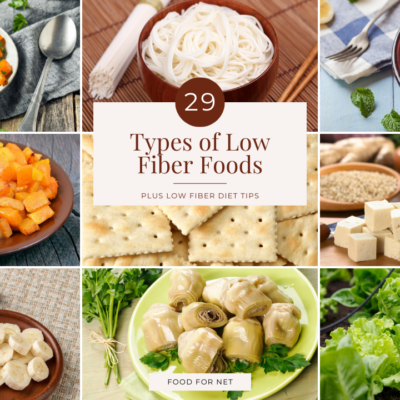


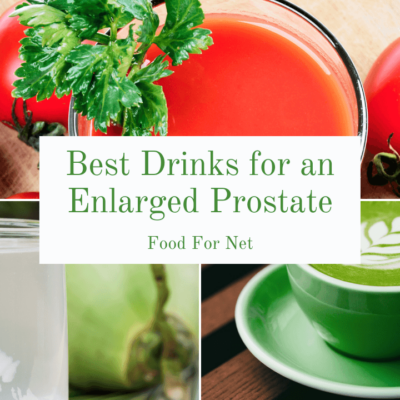

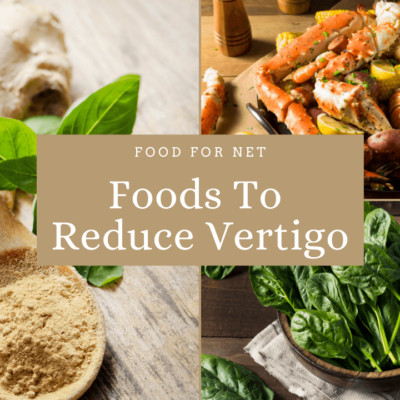
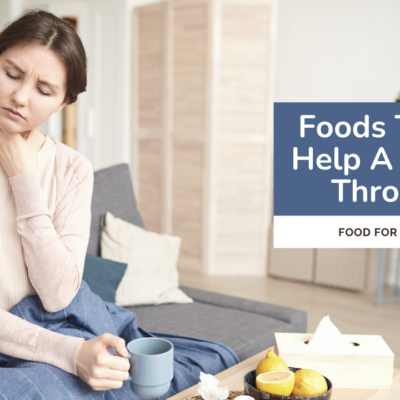

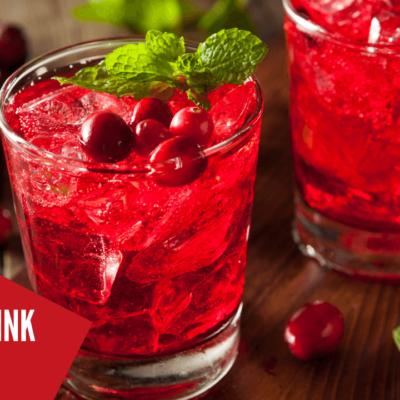
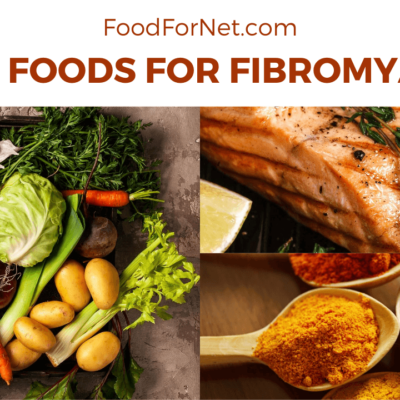
 Pickle Juice Marinade Recipes, Ideas, And More
Pickle Juice Marinade Recipes, Ideas, And More
Leave a Reply